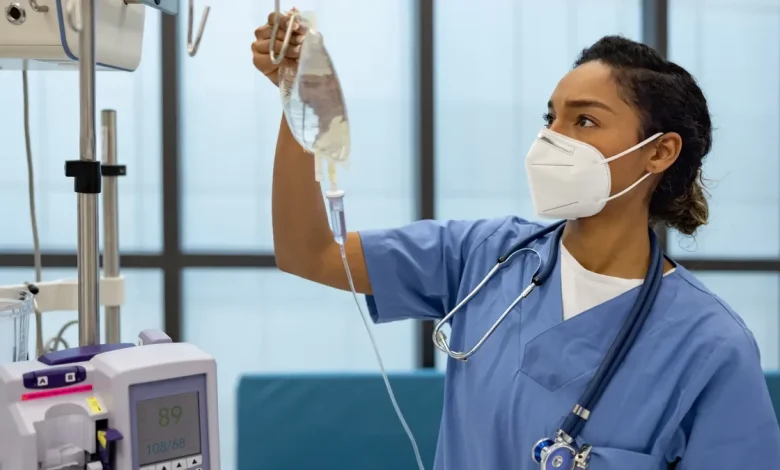Are nurses ‘professionals’? The government’s answer impacts students.

The controversy involves a list of graduate-level career paths considered “professional” degrees that could qualify for bigger federal student loans.
What we know about student loans and the Education Department
Will Education Department restructuring affect your student loans? Here’s what we know know.
Backlash and confusion have swirled after the Department of Education under President Donald Trump left nursing and other professions off a list of “professional” degrees in a proposed rule over loans, which could impact how students finance their education in the future.
The news involves a loose list of graduate-level career paths that could qualify for bigger federal student loans. This list of “professional” programs has a newfound importance as the administration winds down a program that allowed careers off the list to qualify for larger loans.
Leaving nursing off the list has been perceived by some as a slight against a vital field. Besides nurses, other degree programs not explicitly included on the select list of “professional” degrees could see lower loan caps than before.
Just about 20% of the nation’s nursing workforce has a master’s- or doctorate-level degree, according to the American Association of Colleges of Nursing.
Who is considered a professional student? The list includes programs like pharmacy, dentistry, medicine, veterinary medicine and law, among others. The list may not be all-inclusive, but advocates and professional organizations sounded the alarm that it leaves off many important programs.
Previously, graduate students could borrow up to the cost of attendance, the department said.
Here’s what it could mean for future students:
How much will graduate-level nursing students be able to get in federal loans?
The new limits for graduate programs would be $20,500 per year and $100,000 in total. The limits for professional degrees would be $50,000 annually and capped at $200,000.
The proposal eliminates the Grad PLUS loan program, which has historically helped students pursue careers in medicine, law and other training-intensive careers. The Department of Education said Grad PLUS “has fueled unsustainable student loan borrowing.” It also places caps on the Parent PLUS program, limiting them to $20,000 per year per student, with a $65,000 total limit.
This means students in programs not defined as a “professional” degree could face a lower loan cap when pursuing those programs.
When will the new loan rules go into effect?
The proposed rule impacts future student loan borrowing, the Department of Education said.
The loan changes – and overall adjustments to higher education finances and funding – are slated to take effect on July 1, 2026.
What other degrees are impacted?
Besides nurses, other degree programs not explicitly included on the select list of “professional” degrees could see lower loan caps than before. The National Association of Independent Colleges and Universities noted, though, that some of these professions could still meet the regulatory requirements to be considered “professional” despite not being listed as examples.
They include speech-language pathology, physical therapy, physician’s assistants and a slew of others.
Nurses, advocates express frustration with change
Nurses and advocates across the country have called for the decision to be reconsidered.
“Nurses make up the largest segment of the healthcare workforce and the backbone of our nation’s health system,” said Jennifer Mensik Kennedy, president of the American Nurses Association. “At a time when healthcare in our country faces a historic nurse shortage and rising demands, limiting nurses’ access to funding for graduate education threatens the very foundation of patient care.”
Contributing: Zachary Schermele and Kate Perez, USA TODAY





